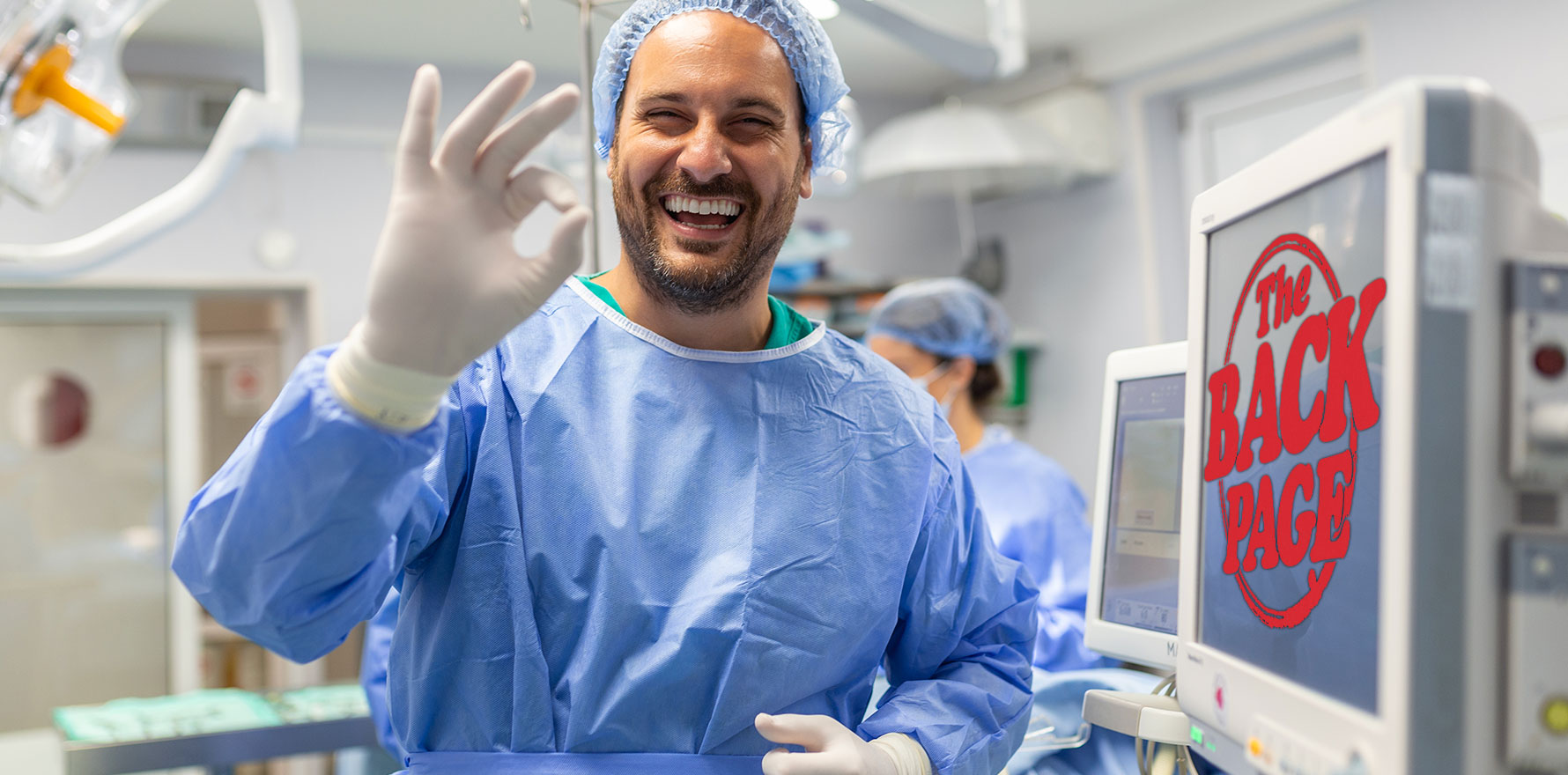Clearly we need to keep them on their toes.
No one should be stressed at work as a matter of routine, except, apparently, surgeons.
If your scalpel-wielder isn’t sweating bullets you could be in trouble, according to a JAMA Surgery paper that plotted surgeon’s sympathovagal balance at the start of a procedure against postoperative complications.
The team, from Brigham and Women’s Hospital at Harvard, recruited 38 French surgeons from seven specialities and measured their heart-rate variability in the first five minutes of nearly 800 procedures.
Primary outcomes were major adverse events during or up to 30 days after surgery, and secondary outcomes included extended ICU stay and mortality within 30 days.
Greater HRV, a validated proxy for stress, was associated with an almost 40% lower odds of major adverse events, 65% lower odds of extended ICU stays and 80% lower odds of dying.
This is in some contrast with previous studies that have suggested detrimental effects from stress, though most relied on self-report rather than a physiological measure.
The authors note that the relationship between stress and performance may be nonlinear, with some being good and more being bad, and probably changes with experience.
“This is consistent with surgeons describing some degree of stress being conducive to performance,” they write. “Taken together, although excessive stress or cognitive workload may harm surgical performance, modest amounts of stress may stimulate better performance in individuals with requisite levels of experience and coping abilities.”
The Back Page was told by a certain psychiatrist parent long ago that there was a continuum of arousal between normality and panic, stopping by alertness and anxiety. “Stress” was for him then a new-fangled and suspect word associated with people who complained and should harden up and get on with it.
“Stress” for these authors seems to mean that stretch of the spectrum between alertness and anxiety, rather than the wholly negative condition it’s commonly used to mean – otherwise it would be hard to talk about “optimising surgeon stress … to improve surgical performance”.
It’s not clear how they propose to target stress – have a nurse flick the back of the surgeon’s neck at surprise intervals if they’re too relaxed? shout at them occasionally for no reason? keep them brutally overworked and at constant risk of errors? – but if any employer type can manage it, it’s hospitals.
“Ultimately,” they reassuringly conclude, “while our results suggest increasing surgeon stress may beneficially impact surgical outcomes, balancing patient considerations with possible ramifications for surgeons will need to be carefully considered.”
Goodo!
Send story tips that vary the heart rate to penny@medicalrepublic.com.au.


